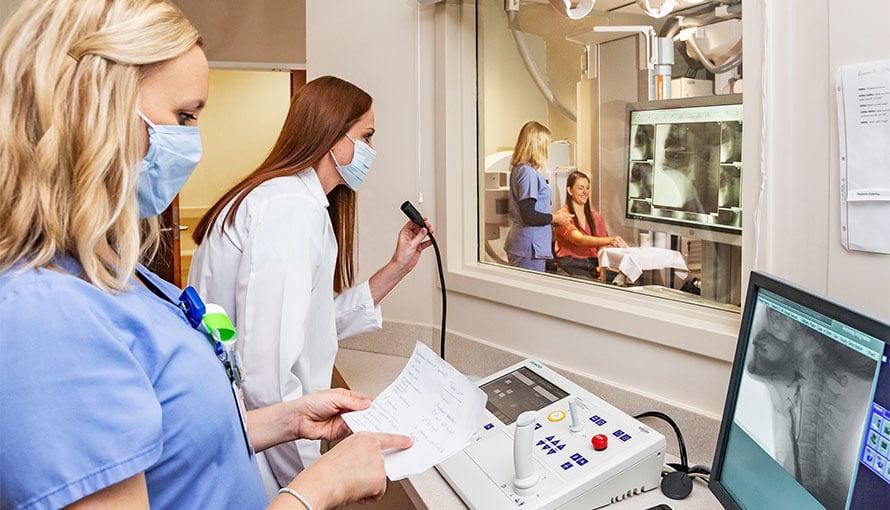Understanding How a Speech Pathologist Works with Various Age Ranges
Understanding How a Speech Pathologist Works with Various Age Ranges
Blog Article
How a Speech Pathologist Can Aid Improve Interaction Abilities
Reliable interaction is a keystone of individual and specialist success, yet numerous people deal with obstacles that prevent their capability to share themselves plainly. A speech pathologist is furnished to attend to these barriers with targeted evaluation and intervention strategies customized per person's needs. By employing evidence-based healing techniques, they not just function to enhance speech and language disorders yet likewise improve overall communicative capability. Recognizing the diverse function of a speech pathologist reveals just how their proficiency can change lives, welcoming a closer exam of the certain methods and outcomes related to their method.
Comprehending Interaction Conditions
Recognizing communication conditions is vital for recognizing exactly how they influence individuals' capacity to reveal themselves and involve with others. Communication conditions encompass a variety of difficulties that affect speech, language, and social communication, frequently hindering efficient interaction. These disorders can occur from different aspects, including neurological conditions, developmental hold-ups, physical problems, or psychological problems.
Speech problems might show up as troubles in articulation, voice, or fluency manufacturing, affecting how words are noticable or talked. Language disorders, on the other hand, involve difficulties in understanding or utilizing language, which can hamper both spoken and non-verbal interaction. Social communication conditions are defined by troubles in the practical facets of interaction, such as taking turns in conversation or understanding social cues.
The consequences of interaction problems are extensive, influencing not just the person's capacity to share emotions and thoughts but also their social connections, academic opportunities, and overall lifestyle. Awareness of these disorders can foster empathy and support, encouraging effective strategies for interaction and involvement. Recognizing the intricacies of interaction problems is an important step towards advertising inclusivity and resolving the needs of those influenced.
Duty of a Speech Pathologist
Speech pathologists regularly play an essential role in treating and identifying communication disorders, using a series of evidence-based strategies customized to each person's demands. These experts collaborate with people throughout the life-span, from youngsters with speech delays to adults recouping from strokes or stressful brain injuries. Their expertise incorporates a range of interaction problems, including expression, fluency, language, and voice problems.
In restorative settings, speech pathologists make use of structured treatments designed to boost communication abilities. They may carry out techniques such as speech workouts, language games, and social interaction training to facilitate renovations in responsive and expressive language capabilities. Speech Pathologist. Additionally, they enlighten clients and their family members about reliable communication methods and adaptive techniques to browse daily interactions
Beyond direct treatment, speech pathologists team up with other healthcare experts, caregivers, and instructors to make certain an extensive technique to therapy. They support for clients by offering sources and assistance, enabling individuals to accomplish their interaction objectives and boost their total quality of life. As experts in the field, speech pathologists are vital in fostering reliable communication, promoting self-reliance, and improving social involvement for those with communication difficulties.
Evaluation and Medical Diagnosis Refine
The analysis and medical diagnosis procedure carried out by speech pathologists commonly entails a thorough analysis to identify communication why not check here disorders accurately. This procedure starts with a thorough instance background, where the medical professional collects pertinent information concerning the person's clinical, academic, and developmental background. Recognizing the context of the person's communication difficulties is essential for an accurate diagnosis.
Following the medical history, speech pathologists make use of standard tests and casual analyses to assess various facets of interaction, including speech audio production, language comprehension, meaningful language, and social communication abilities. These evaluations are tailored to the person's age and particular concerns, giving valuable information for analysis.
Monitoring is likewise an essential element of the assessment procedure, as it allows the medical professional to see firsthand just how the individual connects in natural setups. Furthermore, meetings with household members and instructors can supply insight right into the individual's interaction challenges across various atmospheres.
Once the examination is complete, the speech pathologist synthesizes the searchings for to figure out a diagnosis and suggest appropriate interventions. This thorough evaluation process makes sure that individuals get targeted assistance tailored to their unique communication requirements, laying the structure for effective restorative strategies.
Restorative Strategies and Strategies
Various healing strategies and strategies are utilized by speech pathologists to attend to a range of interaction problems efficiently. One commonly used approach is expression treatment, which concentrates on fixing speech seems through repetition and visual hints. This method is specifically advantageous for individuals with speech sound conditions.
One more efficient approach is language treatment, which boosts both receptive and meaningful language abilities. This might entail interactive tasks that promote vocabulary development, sentence structure understanding, and conversational skills. Additionally, speech pathologists typically utilize social skills training to improve pragmatic language capabilities, allowing individuals to navigate social interactions more successfully.
Fluency shaping and stuttering modification strategies are especially created to help those experiencing fluency disorders. These strategies help clients establish smoother speech patterns and handle the physical and emotional parts of stuttering.
In addition, alternate and augmentative interaction (AAC) systems are utilized for people with severe communication impairments. These systems, which can consist of motions, signs, or electronic tools, supply vital support for reliable interaction.
Benefits of Speech Treatment

Additionally, speech treatment can help in developing vital listening and understanding skills, fostering better communication in discussions. Individuals with cognitive-communication problems can likewise benefit, as treatment concentrates on strengthening memory and analytic capabilities, vital for effective interaction.
One more critical aspect is the psychological support supplied throughout treatment sessions. Speech pathologists develop a risk-free setting, motivating people to get rid of stress and anxiety and disappointment pertaining to their interaction issues. This assistance can lead to enhanced self-esteem and general mental health.
Furthermore, very early intervention with speech treatment visit site can avoid more problems, ensuring that individuals reach their complete communicative possibility. Overall, the advantages of speech therapy prolong best site past mere speech enhancement, favorably impacting different measurements of life for those affected by interaction problems.
Conclusion
In summary, speech pathologists play a crucial function in attending to interaction disorders with analysis, medical diagnosis, and tailored restorative treatments. By employing evidence-based methods, these experts boost people' speech and language capabilities, promoting enhanced quality, fluency, and social communication skills. The benefits of very early intervention underscore the significance of looking for aid from speech pathologists, as their competence can dramatically enhance communicative potential, ultimately resulting in higher success in both individual and specialist spheres.

Speech pathologists regularly play an important role in dealing with and diagnosing communication conditions, utilizing an array of evidence-based strategies tailored to each individual's requirements. As professionals in the area, speech pathologists are essential in cultivating reliable communication, promoting independence, and improving social involvement for those with interaction obstacles.

Report this page